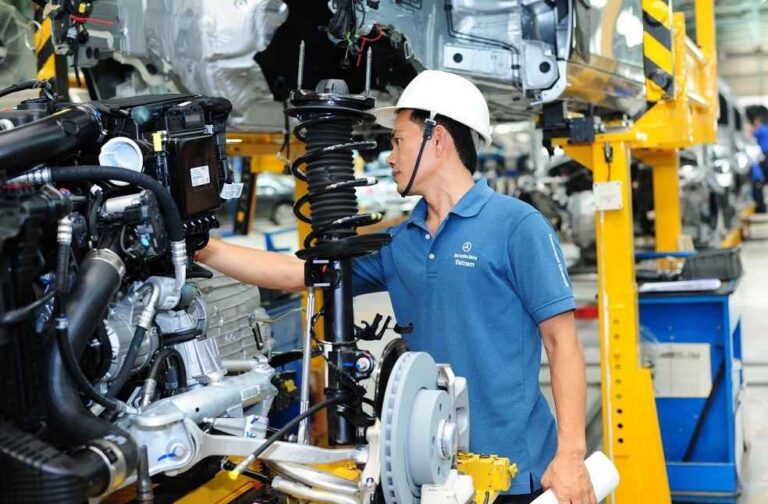The expiration of the 50% registration fee reduction for domestically produced and assembled cars on December 1 has raised concerns about a potential market downturn. The policy, effective from September 1 to November 30 under Decree No. 109/2024/ND-CP, significantly boosted domestic auto sales, with heightened activity in its final months as customers sought to benefit from the reduced costs.
The initiative allowed customers to save between VNĐ17 million and VNĐ235 million per vehicle, driving demand for popular models like the Honda City, CR-V, and Toyota Vios. Vietnam’s car sales rose to about 60,000 vehicles in October, a 10% increase from September, which itself recorded a 30% rise over August.

Domestically produced vehicles, which benefited the most from the fee reduction, now face challenges in sustaining sales. Data from the General Statistics Office shows an output of 281,400 domestically assembled cars in the first 10 months of 2024, a 12.1% year-on-year increase. However, unsold inventory from 2023 and an expected surplus of around 100,000 vehicles signal an oversupply issue.
Meanwhile, imports continue to rise, increasing by 37.8% year-on-year to 143,084 units for the first 10 months and projected to surpass 180,000 units for the full year. Domestically produced vehicles are expected to see minimal growth in output, while new and upgraded imported models intensify competition.

Car manufacturers and dealers are introducing incentives to stimulate demand and clear inventory. However, a sharp decline in sales is expected in December, following the September-November demand surge.
The end of the fee reduction presents a crucial moment for Vietnam’s automotive industry. Domestic manufacturers must address market changes and rising competition by balancing supply and demand and adopting innovative strategies to sustain growth. Flexibility and adaptation will be essential for navigating these challenges.
GENERAL | Turkish Auto Exports Boom in 2024, Europe Dominates with 84.5% Share





